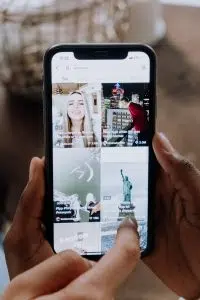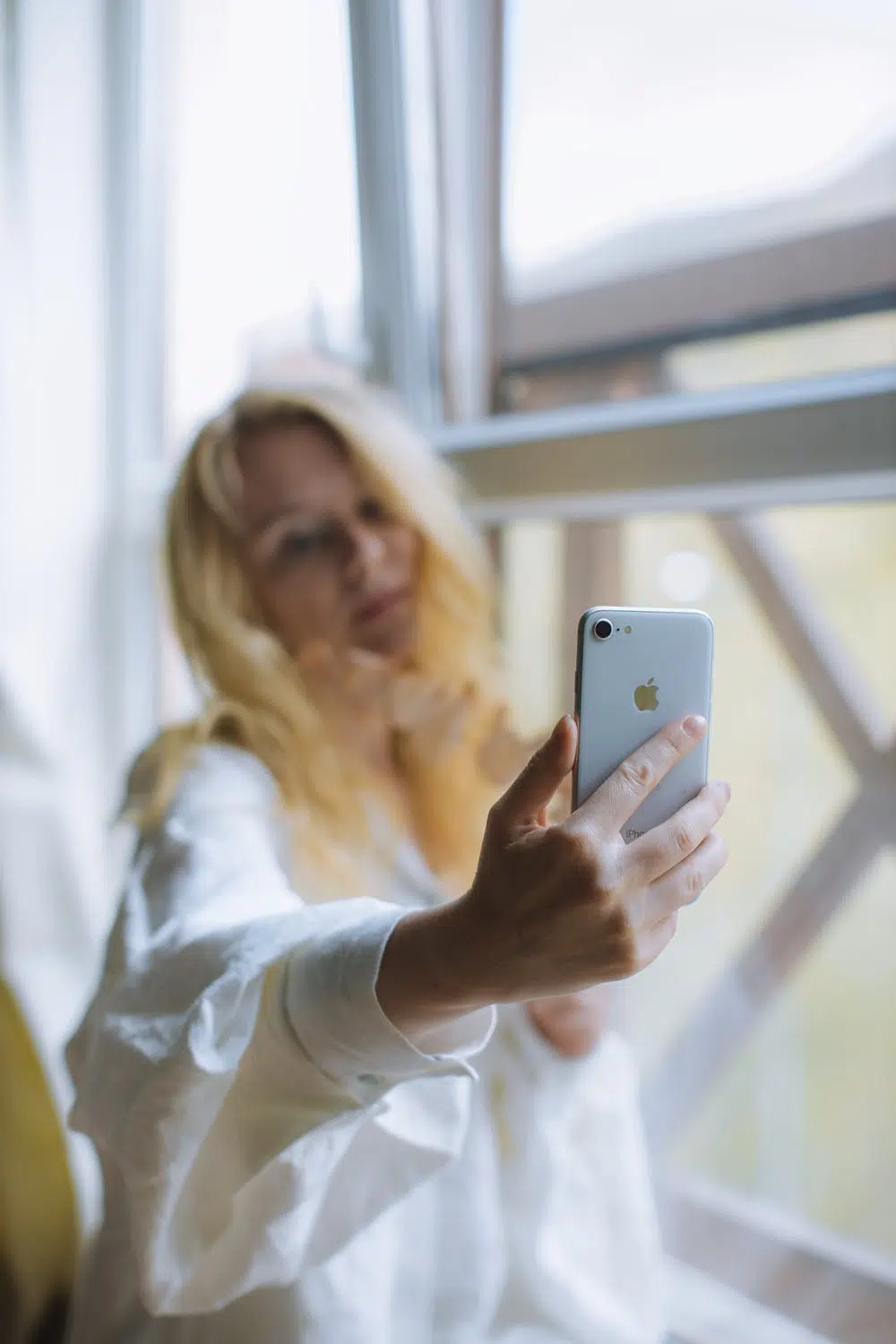Whether we’d like to admit it or not, we spend mass amounts of time scrolling Instagram, Facebook and Twitter. But have you ever wondered how all those images of other people – whether your friend’s “new hair” snap or a celebrity’s selfie – could be affecting how you view your own-self? Social media can shape our concept of beauty. We constantly consume images posted online. But could social media change the way we perceive our own appearance?
FaceTune, an editing app is very common is this day of age. It’s a program where you can edit out pimples, make waist size smaller and even whiten your teeth. Kaylin Matchett, 20 years old, describes social platforms as an imaginary world.
“I look at myself and I’m like wow, I wish I had face tune in real life. I could air brush any acne off my face. I know it’s not realistic, but social media has made everything so unrealistic.” 
Matchett doesn’t just disagree with FaceTunes motives, but she dislikes how TikTok has a new trend every week that involves showing off your body in a competitive way. She feels that people are going to try to live up to a standard and it’s warping a healthy mindset.
“Younger girls on that platform are starting to think that the only way to get attention is to be half-naked, or look like these beautiful, edited women. I feel like I’m consistently trying to catch up to people’s standards of beauty and trends. It’s exhausting. But…I will still consume myself.”
Matchett feels that body modification such as lip injections, Botox and breast augmentation are advertising across all platforms. She feels that social advertisements are reflecting her insecurities. Andrew Fisher studies Computer Science at York University, in Toronto. Fisher said that he had a “rude awakening” on what happens behind our favourite social platforms.
“I thought technology changed the world. I took a couple ethics courses and quickly realized that the only way social media companies and most technology companies make money is the sale of personal information.”
Fisher said Facebook will hire on advertising companies and “that’s how they make their money”. Then the advertising company will put ads on their website and Facebook’s algorithm will collect the data.
“Third party companies will use the data to target advertisements towards you.”
Have you ever experienced clicking on an advertisement and the ad will continue to pop up after that one click? Well, apparently that’s not a coincidence.
“Basically, they watch what you click even to the point of, when your mouse is hovering on something a couple extra seconds longer than something else. They’ll take that piece of data and interpret that as you’re interested in that and then their algorithm will start sending you ads that will cater to you so you’re more likely to click on them.”
Fisher said that the data collecting companies begin to know everything from your biggest fears to your deepest insecurities.
Julia Nikolakakos, 22 years old, king’s university student said she feels like social media is time consuming and it affects her body image.
“I could be doing a lot more productive things a lot of the time, but I spend a lot of time on my phone like on TikTok or Instagram. It affects my body image, just because you see people in perfect shape all the time, like fitness accounts and stuff. It does tend to make you a bit insecure and makes you feel like you’re a little bit less than them.”
Nikolakakos is noticing more body positive accounts showing up on our platforms and sees more action fighting against social media norms in the future. It’s important to note that research into social media and body image is still in its early stages. We can’t prove right now if social platforms cause someone to have negative feelings about their appearance.







